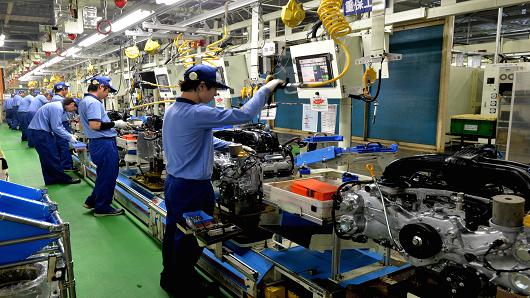GE Digital discusses how smart technologies can improve food processing
AUSTIN, Texas–Stephan Reimelt, president and CEO of GE Germany and Austria, gave a presentation titled “From Automation to Smart Manufacturing” at this year’s HEB Vendors Summit.
HEB is an American supermarket chain based in San Antonio, Texas, and GE Digital is a software company for the industrial internet based in San Ramon, Calif. Vendors gathered to discuss the partnership between HEB and GE Digital. The theme of the summit was how to create the most brilliant food plant.
Reimelt began by noting several challenges facing the food industry, including how one-third of globally produced food is thrown away. “35% of global food is wasted. I don’t have to be looking into any sort of crystal ball to know that market is super attractive,” Reimelt said.
By changing consumption habits, 9 billion people could be nourished, he explained. Moreover, water demands are expected to triple in the next 30 years. Not only do technologies and processes have to be updated to meet these demands, but new business models have to be created, he added.
Reimelt proceeded by explaining how there are two major shapers of the food industry: producers that collect the raw materials and processors that manufacture the food. There are five global food producers that make up 70% of global production, including Cargill, ADM, Cofco, Louis Dreyfus Company and Bunge Limited. In terms of the processing dimension, the task of food factories is to produce an affordable product that has consistent quality, high flexibility and short delivery, Reimelt explained.
Reimelt proceeded by highlighting the industry specific requirements in the food industry today including cost control, increased productivity, operation sites that can react to issues and regulation requirements. “The definition of a food factory today is a different definition than in the past,” Reimelt said. Food processing has been enlarged in the entire value chain from agriculture to consumer. Manufacturing is only representing an average of 50% of the value chain, he noted.
Increased digitalization enables complete connection and transparency throughout the value chain. “It’s not so complicated. We are talking about sensors, data sampling, data processing and data science,” Reimelt said. These technologies can be leveraged to take IT and OT data and make more out of them. “The plant you intend to build needs to be able to be integrated into that newfound space,” he added.
Playing off the theme of building state-of-the-art food plants, Reimelt concluded by mentioning how brewing companies around the world use GE Digital solutions to drive operational excellence and deliver measurable results including: 8% reduction in water loss, 35% reduction in product waste, 15% increase in running efficiency and 90% increase in finished goods.
“So in a plant, don’t forget whenever your factory is standing still, you’re producing waste, and waste and waste treatment is very expensive,” he said. To learn more GE Digital solutions for more efficient factories, see the video below.

